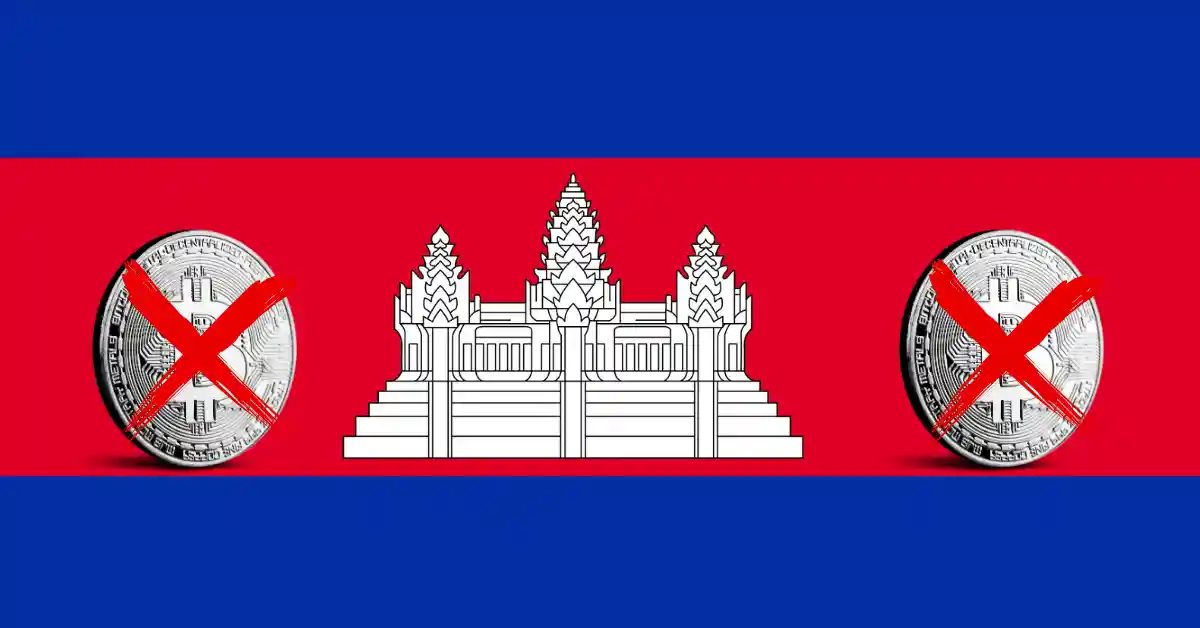
Cambodia blocks 16 crypto websites, including Binance and Coinbase, to tackle unregulated markets.
Crackdown follows concerns over crypto scams, money laundering, and cybercrime in Cambodia.
Binance has partnerships with the Cambodia government while also facing regulatory scrutiny.
Cambodia has blocked 16 cryptocurrency exchange websites, including major players like Binance, Coinbase, and OKX, in a bold move to rein in its booming yet unregulated crypto market. But here’s the catch—while the websites are blocked, their mobile apps remain fully operational. This loophole raises a crucial question: how effective is this crackdown, really?
The story doesn’t end there. Cambodia’s decision is tied to deeper issues, including its battle against cybercrime and growing scrutiny from global watchdogs.
Let’s uncover the twists and turns ahead.
Fighting Crime and Scams
The Cambodian government is under pressure to improve its image as a hotspot for cybercrime and crypto-related scams. A report by the UN Office on Drugs and Crime (UNODC) revealed that criminal groups in the country use cryptocurrencies for illegal activities like money laundering and transactions on the dark web.
Adding to these concerns, a Chainalysis report found that over $49 billion in crypto transactions were linked to Huione Guarantee, a key entity within Cambodia’s Huione Group.
Big Names Targeted in Sweeping Ban
On November 20, the Telecommunication Regulator of Cambodia (TRC) issued a directive blocking 102 websites. While most of these were associated with online gambling, the inclusion of well-known crypto platforms like Binance surprised many. The TRC explained that these platforms lacked proper licensing from Cambodia’s Securities and Exchange Regulator (SERC).
This move is particularly surprising given Binance’s involvement in supporting Cambodian authorities. In 2022, Binance partnered with SERC to help develop crypto regulations and later provided training to Interior Ministry officials on tackling crypto-related crime.
Despite this cooperation, Binance is still among the blocked platforms, adding confusion to the regulatory effort.
Limited Options for Legal Crypto Operations
Currently, only two companies are authorized to operate digital asset businesses under Cambodia’s “FinTech Regulatory Sandbox” program. However, even these firms face strict limitations, such as being unable to convert digital assets into local or foreign currencies, which significantly restricts their functionality.
- Also Read :
- Why Did Coinbase Exit Turkey? Here’s the Inside Story
- ,
Despite the crackdown, Cambodia remains a significant player in the global crypto market. It ranks among the top 20 countries for retail crypto usage per capita, with centralized exchanges handling 70% of all transactions.
Will Tightened Regulations Work?
“Broad-based restrictions often fail where organic demand and practical applications exist,” said Chengyi Ong, Chainalysis’s head of Asia-Pacific policy. This insight suggests that even with stricter regulations, Cambodia’s crypto market may adapt and continue to grow.
As the government tightens its grip, the challenge will be finding a balance between regulation and the strong demand driving the crypto market forward.
Despite the crackdown, Cambodia’s crypto community might just find a way to thrive in the shadows of tighter rules.








